Ryan Jamaal Swain on Pose's legacy and why joy is vital in queer Black stories
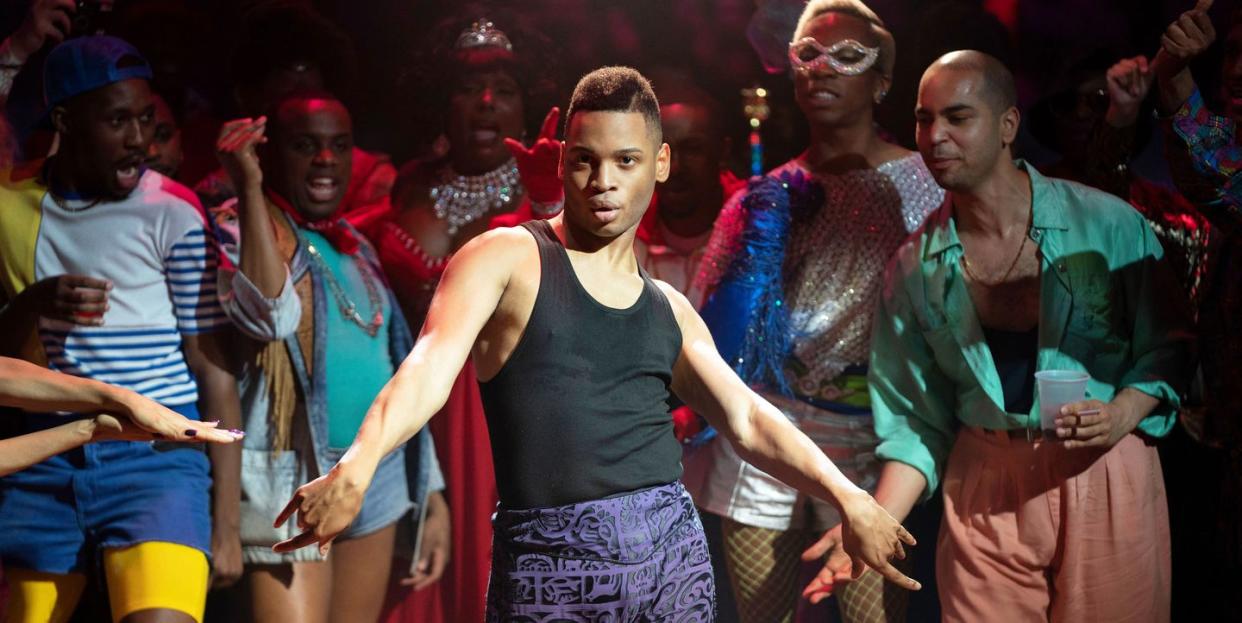
- Oops!Something went wrong.Please try again later.
Rainbow Crew is an ongoing interview series that celebrates the best LGBTQ+ representation on screen. Each instalment showcases talent working on both sides of the camera, including queer creatives and allies to the community.
Next up, we're speaking to Pose star Ryan Jamaal Swain.
Everyone who works on Pose is an absolute star, tens across the board, and that makes it almost impossible to pick a favourite. But for fans watching from home, it was Damon who provided that first entry point into ballroom, opening our eyes to a vital part of LGBTQ+ history that many didn't even know existed.
Unfortunately, Pose itself will soon become part of history too. After three groundbreaking seasons, Steven Canals' truly exceptional show is coming to an end. To celebrate Pose's journey, we caught up with star Ryan Jamaal Swain to discuss its unparalleled legacy and why joy is vital in queer Black stories.
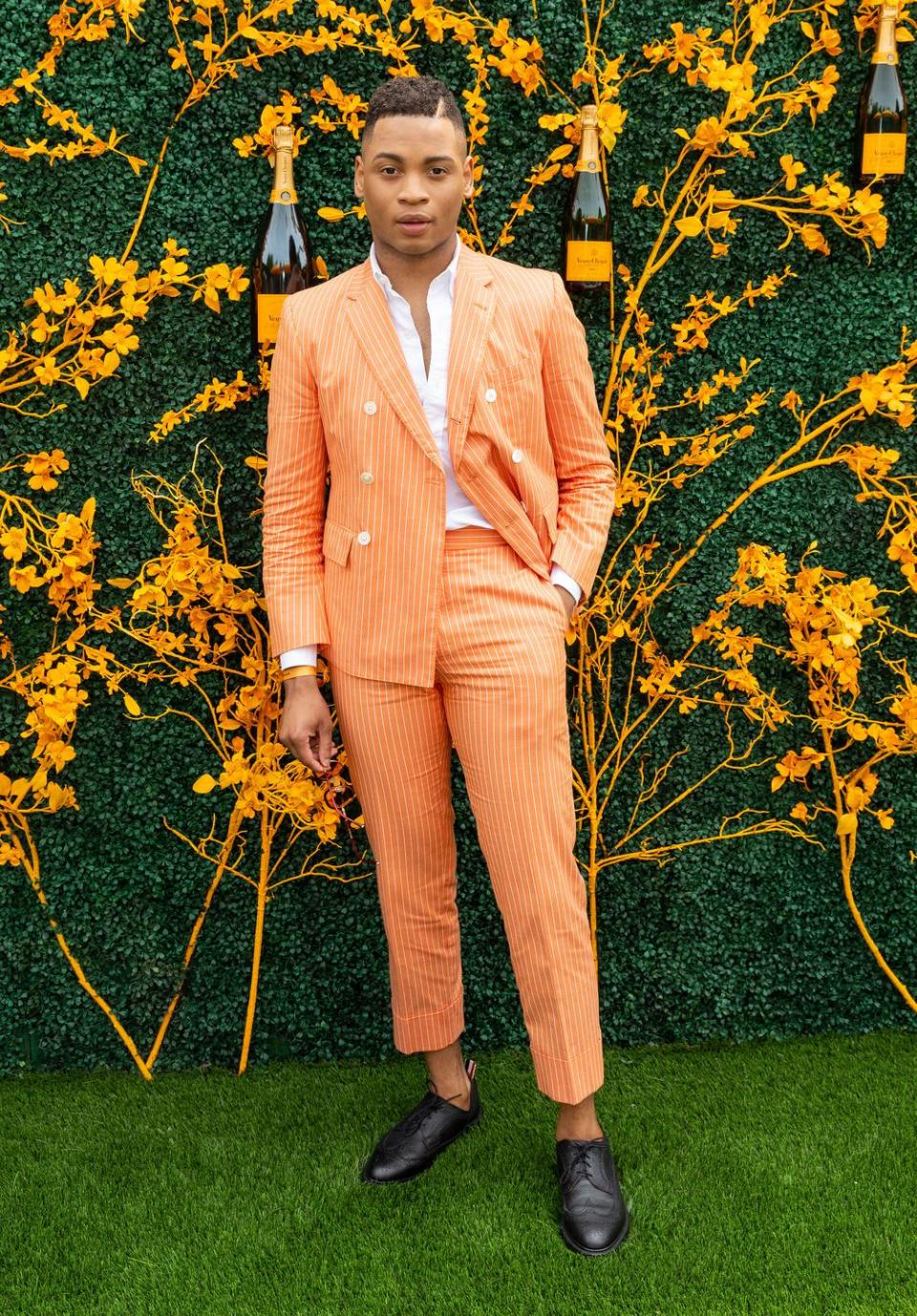
When do you remember first seeing queerness on screen? Was it a positive experience?
It’s funny that I’m on a Ryan Murphy show, because the first time that I really saw it was on Nip/Tuck, and I think also Glee. As a high-schooler, I would see bits and pieces of, say, somebody that was queer and white, and, you know, it’s gay queerness. But I never saw Black or brown queerness.
There were moments where I was just sitting at home, and would be watching local TV or something like that, and I would close my door, and I would see maybe Noah’s Arc or something like that. But bits and pieces. You know what I mean? Never full representation.
There’s a term: symbolic annihilation, where you don’t see yourself represented in the media, and you just don’t think you’re important. That was what I was really going through, especially growing up in my hometown, in the south of the country, and really having to hide who I was.
It was very important for me to find little bits and pieces of joy and hope, specifically queer joy and hope. I was like, “OK. Oh, I’m not weird. There’s nothing wrong with me. I’m normal.”
Pose does such a beautiful job of balancing queer pain and joy.
Absolutely. Everything has to have balance, a yin and a yang. Oftentimes for queer folk and LGBTQI+ people from the community, we understand that our truth never really warrants our safety. I don’t believe in coming out. I believe in inviting in people to your life, and to your world, and to who you are.
I think that queer joy is so necessary. To choose your truth over your safety; to take into partnership your authenticity – because your authenticity is your superpower – to really engage with that, and share that with the world, that’s huge. There’s 60-year-old, 70-year-old people that haven’t even obtained that in the 60 or 70 years they’ve been in the world.
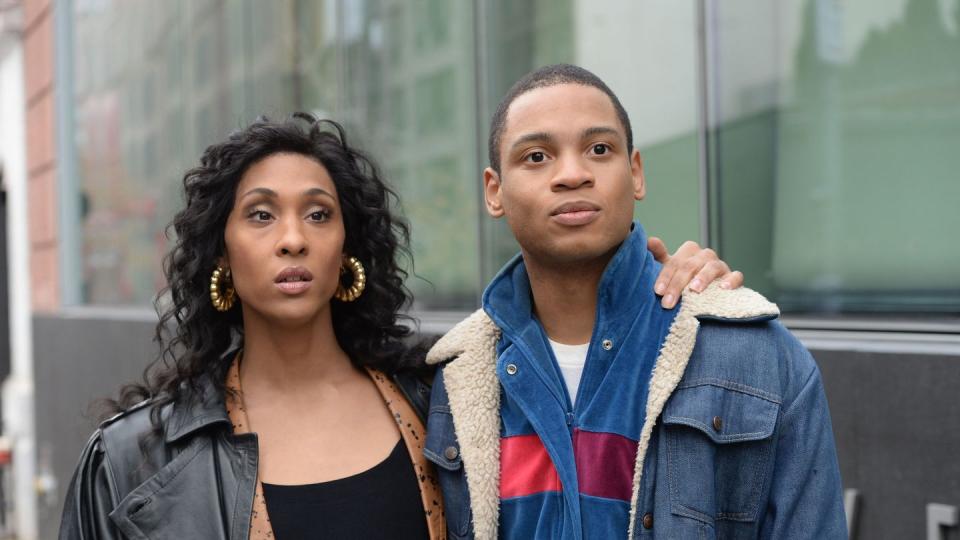
Talking about queer joy always makes us think of Damon's Whitney Houston audition from the very first episode of Pose. What's it like to look back on that scene now?
First and foremost, I’m teleported back to how my body was feeling. I’m nervous. I’m overjoyed. I’m looking at Ryan Murphy. I want to dance with somebody. It’s all of these things.
It fills me up with so much joy because I would have loved to have had that representation as a child. People are telling Damon that he’s not this, or he’s not that. But he’s still showing up for himself, just wanting to fully occupy that space.
We think about what Pride was built on. We know that it was a revolution. But then also, on top of the revolution, it was a means to celebrate who you are, and to celebrate with the people that you’re with.
There’s some media that still doesn’t appreciate the balance of understanding both the troubles and also the joys. But I think that we need more of that, because joy is a direct tie to your imagination, and imagination is the incubator for creativity and innovation. You have to feel comfortable and feel happy to dream something that you haven’t seen before, or to want something that is so full of love, and so full of light.
Can you recall any particularly meaningful responses you've received from fans of the show?
Oftentimes, I get stopped by a lot of Black and brown queer people in the street. First off, they start crying, and they're like, "Your character really, really meant a lot to me and my family. I was able to have a conversation around being gay, and wanting to find my own path." I would get copious, copious amounts of that.
And there was something that was shared by Dwyane Wade – the ex-basketball player. He was saying that he was watching Pose with his daughter, Zaya, who has recently shown the world that she is of trans experience. He was talking about a scene in particular where Damon gets kicked out of his home, at the beginning of the series. He said that Zaya couldn’t believe that something like that could happen to her. She couldn’t imagine that.
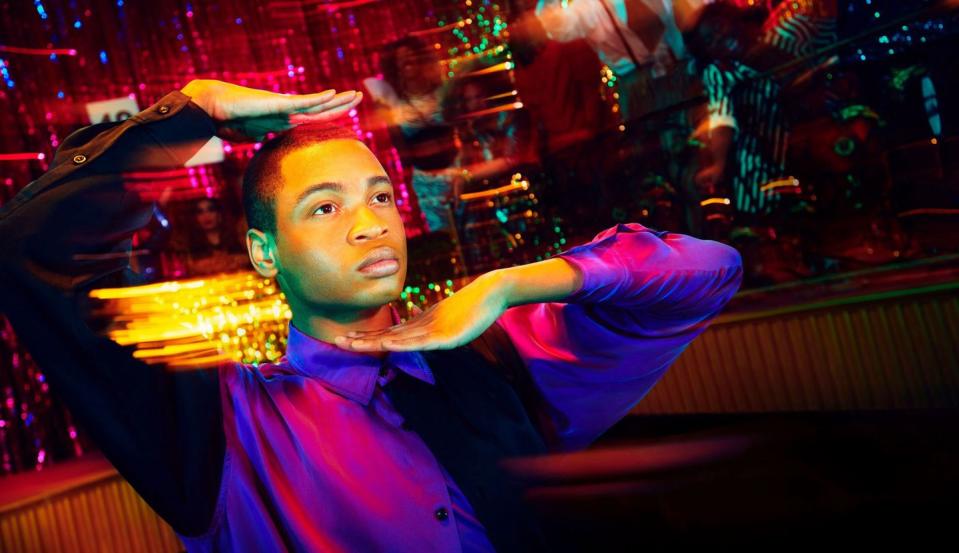
It really was empowering to hear that, especially from Dwyane Wade and Gabrielle Union-Wade, a cis, heteronormative, Black family that’s come from a similar background to me, you know, with church being a thing, and spirituality being a thing, and people using that to condemn people who are different or unique.
For them to be wrapping Zaya up with that type of love, that she couldn’t even imagine something like that happen, it really reminded me of the power of representation, and the power of visibility. That was just really, really, really incredible, to be the vessel of that type of liberation, that joy, and that visibility.
Shows like Pose create a safe space for people watching at home, and then there’s also the physicality of queer space, like ballroom. What are your thoughts on safe spaces and why they're so important within the LGBTQ+ community?
I’ve had a weird kind of relationship with the term safe space. When we say "safe spaces", it means that everything else is unsafe. It’s weird to me. Because it’s just like: well, we have this safe space that we’ve created, but then outside – is the safe space just here? Is it this room?
I think that it’s important to have safe spaces in people. Finding sanctuary and finding a home in people – your chosen family; your bio-family; your relationships; filling yourself up with those type of safe spaces, because I think that safe spaces can move, and safe spaces aren’t always so physical.
I mean, with what happened with Pulse Nightclub, we’d imagine that a gay club would be a safe space for Black and brown queer folk, and anybody. But then those things, with one unsafe entity, become some place of horror and terror.
So I think that instead of really engaging with this idea of having this validation, or this place outside of ourselves, it’s really understanding what safe spaces look like with the people and the community that’s around us. It needs to be like that because this world is so unpredictable. I never want to give my power up to a space like that. It should never, ever be in that way.
I think that there is sanctuary, and safe havens, and places where you can come back to reset, reboot, recharge. But I think that the safe space has now become mobile. It really is the community and the tribe that you have around you that creates the space. I believe that we should get into the habit of thinking and really workshopping that idea, right?
Why do you think authenticity is so important when it comes to queer storytelling?
With many things I’ve been a part of, there’s always this marketing scheme, or this idea that if you fill those roles with authenticity, then they can’t sell. And I think that we flipped that on its head with Pose being the largest LGBTQI+ series cast ever assembled.
It’s so important, right? I can never tell a story about transness, or being Jewish, or being Muslim. I think it’s really important specifically because people that are authentic with all those experiences and those intersections, can inject the world with specificity and nuance.
You can’t tell a story you don’t know. The best story that you can tell is the one that you do know. I don’t want a cis-het white man talking to me or telling me about my story, love. You can’t tell me about my story, because, at the end of the day, you don’t know my story. And oftentimes, because things are selling and being marketable, and doing really, really well, they try to jump on the bandwagon of telling stories that are not necessarily theirs, but are in the fabric and in the centre of everybody’s consciousness at the present moment.
But it always falls short. You can be inspired, honey, but that doesn’t mean you tell the story that you don’t know about [laughs].
Looking back on your career so far, what are you most proud of?
I think that for me, I’m just mostly proud of showing up in my fullness, in all of my… either my ugly or my joy or my happiness or my sadness. And just showing up to be seen.
That’s such a powerful act, to just show up. Showing up for yourself, and showing up for the people that have tapped into your communities that you represent.
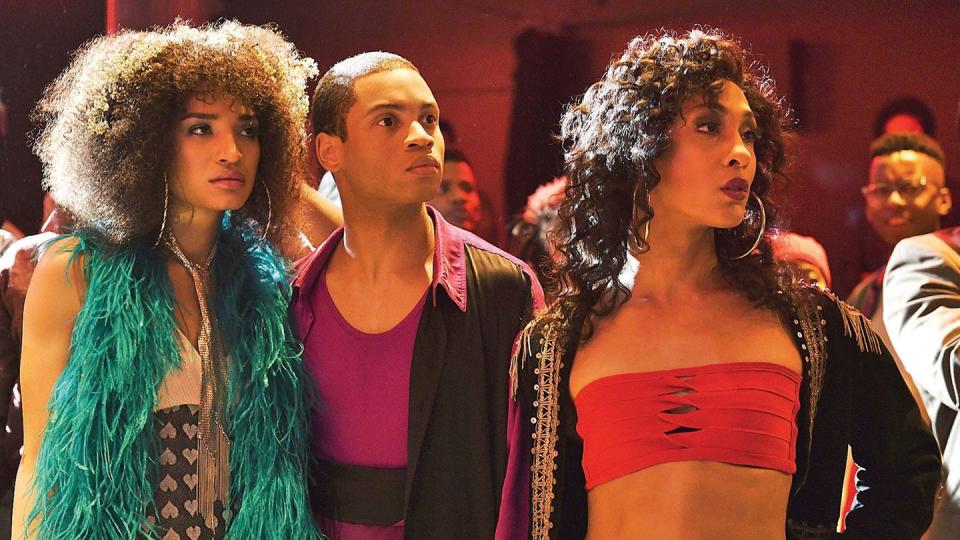
What a powerful act to be truthful. To be vulnerable. To be authentic. And sometimes – I mean, it’s mostly always scary to do. I’ve never not known it not to be scary. Showing up has really given me the most joy. It’s given me a lot of anxiety, still. But still, mostly joy and happiness.
What advice would you give to young queer people who are navigating their identity in 2021?
I would say: keep showing up and being seen. I think that for you to tap into your authenticity, that is the best way to activate and to engage all of your superpowers, and that’s the way in. I love you, and I’m proud of you for just stepping up and being vulnerable.
Nothing can come out of being guarded, and being vindictive and jaded. There’s radicalisation in just being all of you. Just really tap into who you are. You are you because you’re you. Your magic is connected to your story. So explore and keep writing those pages of your own story, because, at the end of the day, we want to read it. And we will want to read it, and see it, and be exposed to all the magic that you are.
Because for you to already tap into this at your young age, or at this time of your life, that is a huge, huge thing. So that’s not to be taken lightly. Just keep stoking your magic.
What's next for you now that Pose is coming to an end?
There was a young man, a mogul, in Birmingham, Alabama, and his name was A.G. Gaston. He had this quote – this really, really beautiful quote – about, "I just saw a void that needed to be filled." So a lot of my work is about tapping into that, as far as what I’m writing, what I’m saying yes to, as far as TV and film stuff.
We need to get into the habit of soaking in joy. I’m really into the idea of just wanting to create joy for Black and brown and queer and gender nonconforming folk, so that they can see that it’s possible to dream of the impossible.
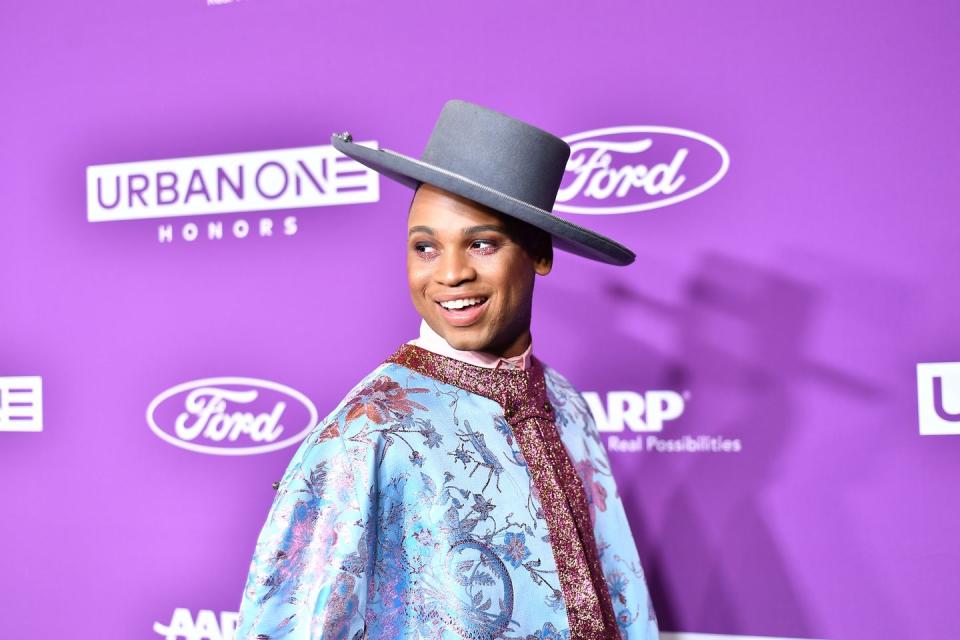
There’s something to be said about seeing Black and brown queer people in the future, and seeing a world where you don’t have to necessarily be bogged down by your race, or the implication of your race, or the intersection of your people.
And that’s really, really powerful. I think that we need more of that. So I’m in the process of creating my own work, to excavate and to really develop that. It’s about creating joy in small doses and big doses, and just really, really tapping in like that. Joy is so vital.
Pose season three airs on FX in the US. A UK air date has not yet been confirmed.
Digital Spy's digital magazine is back – and we've got an EXCLUSIVE interview with Dave Bautista. Read every issue now with a 1-month free trial, only on Apple News+.
Interested in Digital Spy's weekly newsletter? Sign up to get it sent straight to your inbox – and don't forget to join our Watch This Facebook Group for daily TV recommendations and discussions with other readers.
You Might Also Like

